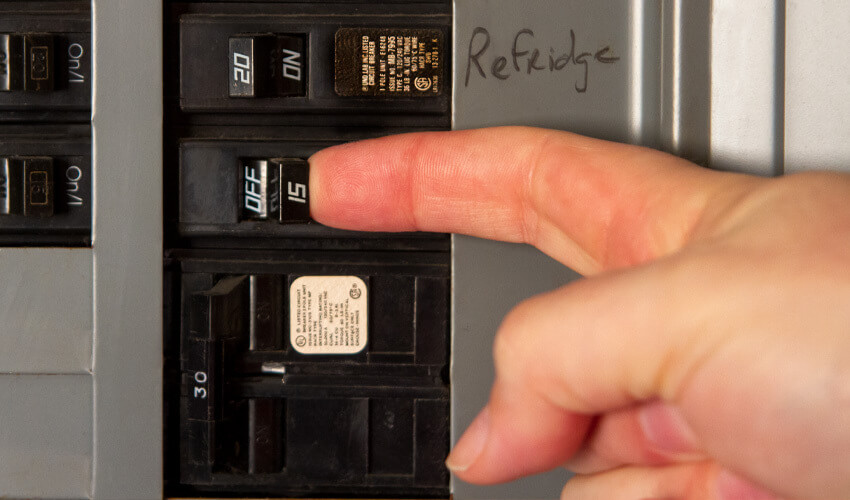What Appliances Need a Dedicated Circuit for Safety?

Although modern home appliance circuits are typically set up to handle high electrical capacities, the National Electrical Code (NEC) requires that large appliances, and certain smaller ones, operate on their own dedicated circuits. Local electric codes are generally based on the NEC but may have more stringent requirements.
Because large appliances and heat-producing devices typically require higher wattage to operate, they may pull more current than a general-use circuit can safely handle. So don’t create a potential fire hazard! Knowing what appliances require a dedicated circuit will help ensure that your appliances run smoothly and safely.
What to Check On
Look on the appliance’s information sticker or plate to find the wattage. As a rule, electronics, and appliances that are rated for 1,000 watts or higher likely need a dedicated circuit, especially if the item will be operating for long stretches of time. For example, a 1,800-watt hair dryer that is used for a few minutes may not require a dedicated circuit, but a 1,800-watt electric fireplace that you will use for hours is likely to need one.
Lists of Appliances that Require a Dedicated Circuit
In the Kitchen
Dedicated circuits are highly recommended for all these devices:
- Electric oven, stove, or range
- Refrigerator
- Stand-alone freezer or chest freezer
- Dishwasher
- Microwave
- Garbage disposal
- Toaster oven
- Countertop convection oven
- Countertop deep fryer or air fryer
Wattage usage varies from model to model, so for some items listed, a dedicated circuit may be optional. It depends on the frequency and duration of use. Talk to an electrician about circuit needs, and always err on the side of caution.
Are you on the fence between installing a gas oven versus an electric one? Read the pros and cons.
In the Laundry Room
- Electric dryer
- Washer
Your laundry room should have a dedicated circuit of at least 20 amps. If you have a gas dryer, both your washing machine and gas dryer may be plugged into the same outlet. If you have an electric dryer, it will need its own dedicated 20-amp, 220-volt circuit.
If you typically use other small appliances in your laundry room—like irons or steam devices—a separate circuit for them is a good idea too.
In Living Rooms and Bedrooms
- Electric fireplace
- Infrared heater, heater fan, and space heater
- Window air conditioning unit
Depending on wattage requirements, the devices above may need dedicated circuits.
Most lamps, fans, and other low-demand items can be operated on a general-use circuit. Typically, flat-screen televisions, desktop computers and other electronics can be safely operated on a normal circuit, but you should always have them plugged into surge-protected outlets.
In the Garage
- Large air compressor
- Power saw, drill and other power tools
If you are a do-it-yourself homeowner who uses lots of power tools, one or more dedicated circuits in your garage or workshop is a must-have.
In Utility Rooms and Outdoors
- Furnace and water heater pump
- Sump pump
- Central air conditioning unit
- Water heater
- Hot tub or spa
- Large holiday light display
Get Professional Help
If you would like more information regarding NEC requirements and safety recommendations, check with the National Fire Protection Association.
If you need help with home appliance upkeep, trust Mr. Appliance to keep your appliances operating safely and at peak performance. We offer flat-rate, up-front pricing, flexible scheduling options, and guaranteed workmanship to make your life easier! Schedule service with us today.
 Click to call
Click to call


